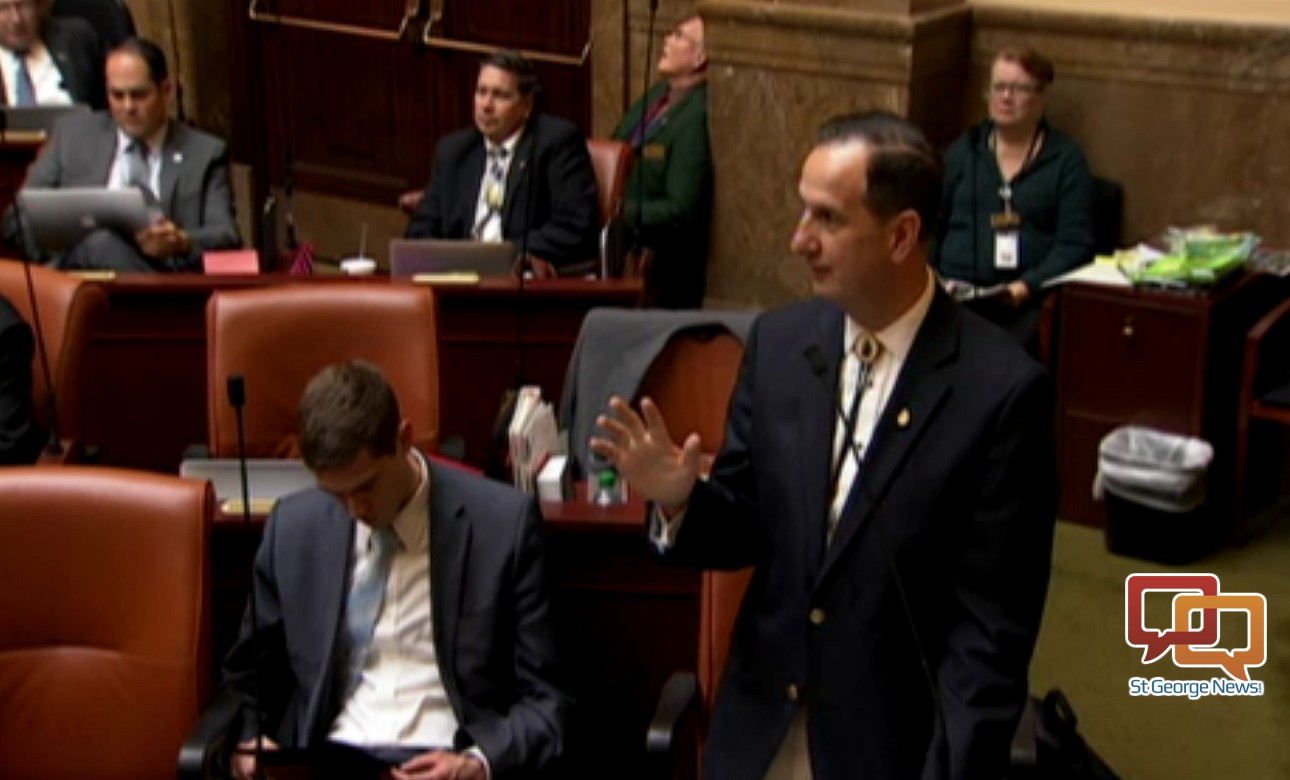
ST. GEORGE — In the wake multiple ballot initiatives that were approved by voters last year, some Utah legislators are proposing bills that would tweak the ballot initiative process.
Two proposed bills, HB 133 and HB 145, would delay when ballot initiatives would take effect if passed, as well as set a limit on the time signatures on initiative petitions can be turned in and removed.
In November, ballot initiatives targeting gerrymandering, Medicaid expansion and medical marijuana were passed by Utah voters.
The medical marijuana initiative, better known as Proposition 2, went into effect at the beginning of December with a special legislative session held right after so lawmakers could pass a compromise bill that replaced it.
Read more: Legislature rejiggers Proposition 2, the medical cannabis initiative passed by voters
HB 133: Allowing the Legislature time to tweak citizen initiatives
HB 133, sponsored by Rep. Brad Daw, R-Orem, would delay the implementation of successful citizen initiatives to 60 days after the end of the state’s general legislative session.

“What we’re hoping to achieve is not being put in the same situation we were in with Proposition 2 by being rushed into a special session,” Daw said.
One of the reasons the Legislature couldn’t wait for the general session to address Proposition 2 related to creating a conflict with law enforcement agencies’ ability to enforce certain drug laws, Daw said.
There were also concerns among legislators and others that the new medical marijuana law was under-regulated and could result in the creation of a marijuana black market within the state, he said.
If a ballot initiative is complex or has elements that give lawmakers concern – such as how to potentially pay for parts of an initiative if it requires funding – delaying its effective date gives the Legislature time to address those issues and make adjustments.
“People are concerned I’m trying to subvert or overturn the initiatives. I’m not,” Daw said. “If it’s complex, it may need some tweaking from Legislature.”
Speaking about ballot initiatives in general, Rep. Travis Seegmiller, R-St. George, recently told St. George News that while the state’s constitution gives citizens the ability to create and push through the initiatives – a right he supports, he said – it’s up to the Legislature to make sure it works.
Resources
- Read full text of bill: Utah 2019 House Bill 133 – Initiative Amendments.
- Contact legislators
- Bill sponsor: Rep. Brad Daw.
- Southern Utah Sens. Evan Vickers, Don Ipson, David Hinkins and Ralph Okerlund | Listing of all senators.
- Southern Utah Reps. Travis Seegmiller, Bradley Last, V. Lowry Snow, Walt Brooks, Rex Shipp, Merrill Nelson and Phil Lyman | Listing of all members of the House of Representatives.
HB 145: Transparency in signature gathering
Rep. Norm Thurston, R-Provo, told St. George News his intent with HB 145 is to provide a more transparent process for Utah voters who sign ballot initiative petitions or want their names removed afterward.

Thurston’s bill would require that a signature packet be turned in to a county clerk’s office within 14 days of the first signature gathered. From there the county clerk must quickly verify the signatures and then post the names to a public list online that anyone can view.
“It allows everyone to know the status of their signature,” Thurston said.
Someone who believes their name may have been forged or has changed their mind about the initiative has 45 days to remove their signature.
The 45-day removal rule would apply to any group seeking to persuade petition signers to remove their names. Once a form to remove a signature is collected by the group, it also has 14 days to hand it over to the county clerk’s office.
“The important thing is it would create a transparent, level playing field,” Thurston said.
Having the time periods attached to signature collection and removal is also intended to keep groups from waiting until the last minute to turn in signature packages, he said.
In an interview with Utah Policy on HB 145, Thurston said this is a practice that just makes more work for the county clerk and leaves voters in the dark.
Thurston added that a voter’s signature belongs to them alone and not the groups that collected it.
The 2019 legislative session begins Jan. 28.
Read more: See all St. George News reports and opinions on Utah Legislature 2019 issues
Resources
- Read full text of bill: Utah 2019 House Bill 145 – Citizen Political Process Amendments.
- Contact legislators
- Bill sponsor: Rep. Norm Thurston.
- Southern Utah Sens. Evan Vickers, Don Ipson, David Hinkins and Ralph Okerlund | Listing of all senators.
- Southern Utah Reps. Travis Seegmiller, Bradley Last, V. Lowry Snow, Walt Brooks, Rex Shipp, Merrill Nelson and Phil Lyman | Listing of all members of the House of Representatives.
Email: [email protected]
Twitter: @MoriKessler
Copyright St. George News, SaintGeorgeUtah.com LLC, 2019, all rights reserved.
Does this mean we can get rid of watered down beer in Utah faster?
So… initiatives must have all the signatures gathered and turned in within 14 days (pretty quick!), after which the names of all signers will be published. Not exactly a secret ballot – yes I know, it’s an initiative, not a ballot. Seems like an effective way to intimidate voters into not signing anything remotely controversial.
America is not a democracy. For example, if your community passed an initiative(voted) to execute you, you would still be entitled to due process. A majority cannot decide to supersede established law. We are a nation of laws which have been enacted by our representatives. Citizens do not, by vote, create laws. They choose legislators to do that and courts to interpret the laws.